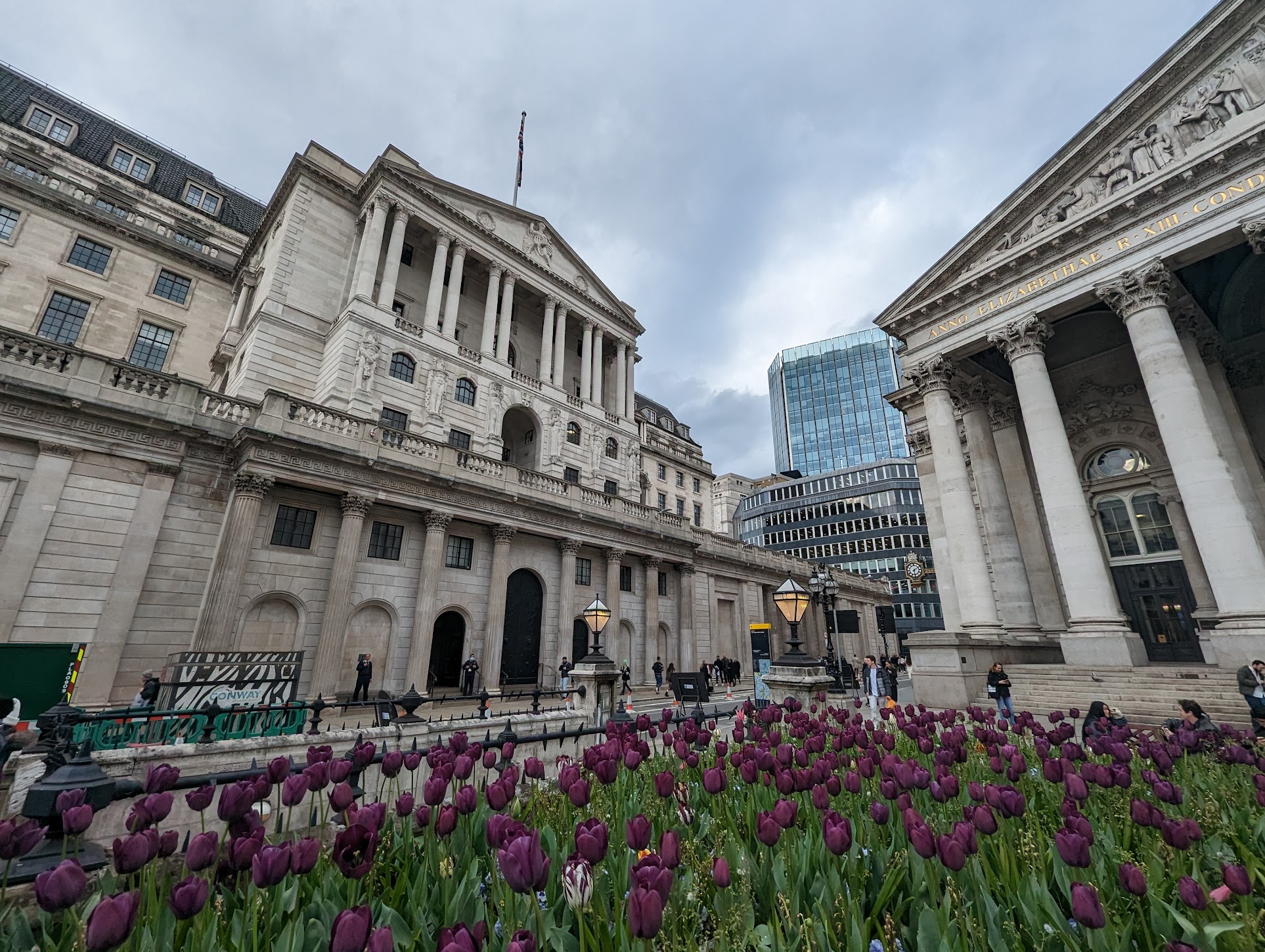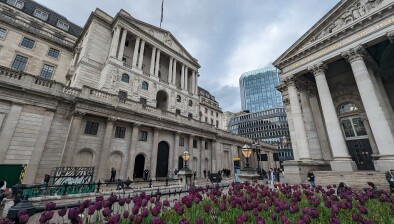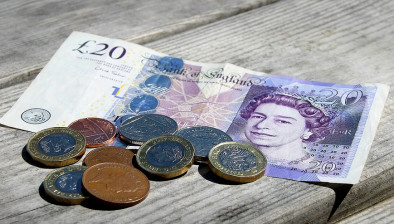BoE rate-setter downplays inflation spike as ‘one-off’, backs more cuts

The Bank of England building (credit: George Iordanov-Nalbantov)
A Bank of England (BoE) rate-setter has played down the recent surge in UK inflation, reiterating his call for additional interest rate reductions.
Alan Taylor, a member of the Monetary Policy Committee (MPC), attributed the latest inflation increase to “one-off factors”, specifically citing US President Donald Trump’s ongoing trade war and the impact of Chancellor Rachel Reeves’ tax increases on employers.
Despite official figures last week revealing that inflation jumped to 3.5% in April, Mr Taylor asserted that this rise was not primarily driven by demand and supply pressures. Instead, he pointed to “one-time tax and administered price changes”, including regulated increases in water bills and energy caps, as the main culprits. He aligned with the BoE’s forecast, which anticipates a temporary “inflation hump” that will subsequently subside.
The BoE reduced interest rates to 4.25% in its latest meeting, their lowest point since 2023. However, this decision highlighted significant divisions within the nine-member MPC. Mr Taylor and fellow member Swati Dhingra had advocated for a more substantial half-point cut, while others, such as Huw Pill and Catherine Mann, expressed concerns over persistent inflation.
Mr Taylor acknowledged that recent trade deals secured by the UK with the US and EU were “welcome”, but cautioned that they represented only a small fraction of the UK’s overall trade activities. He voiced ongoing concern about the economic outlook, stating there was “more risk piling up on the downside scenario because of global developments”. He specifically warned that President Trump’s trade offensive would act as a “drag on growth”.
Although UK GDP expanded by a stronger-than-expected 0.7% in the first quarter of the year, Mr Taylor remained “pretty concerned” about the economy’s trajectory. In an interview with the Financial Times, he indicated his continued belief that a “lower [monetary] policy path” was necessary, though he refrained from pre-emptively announcing his future voting intentions.







